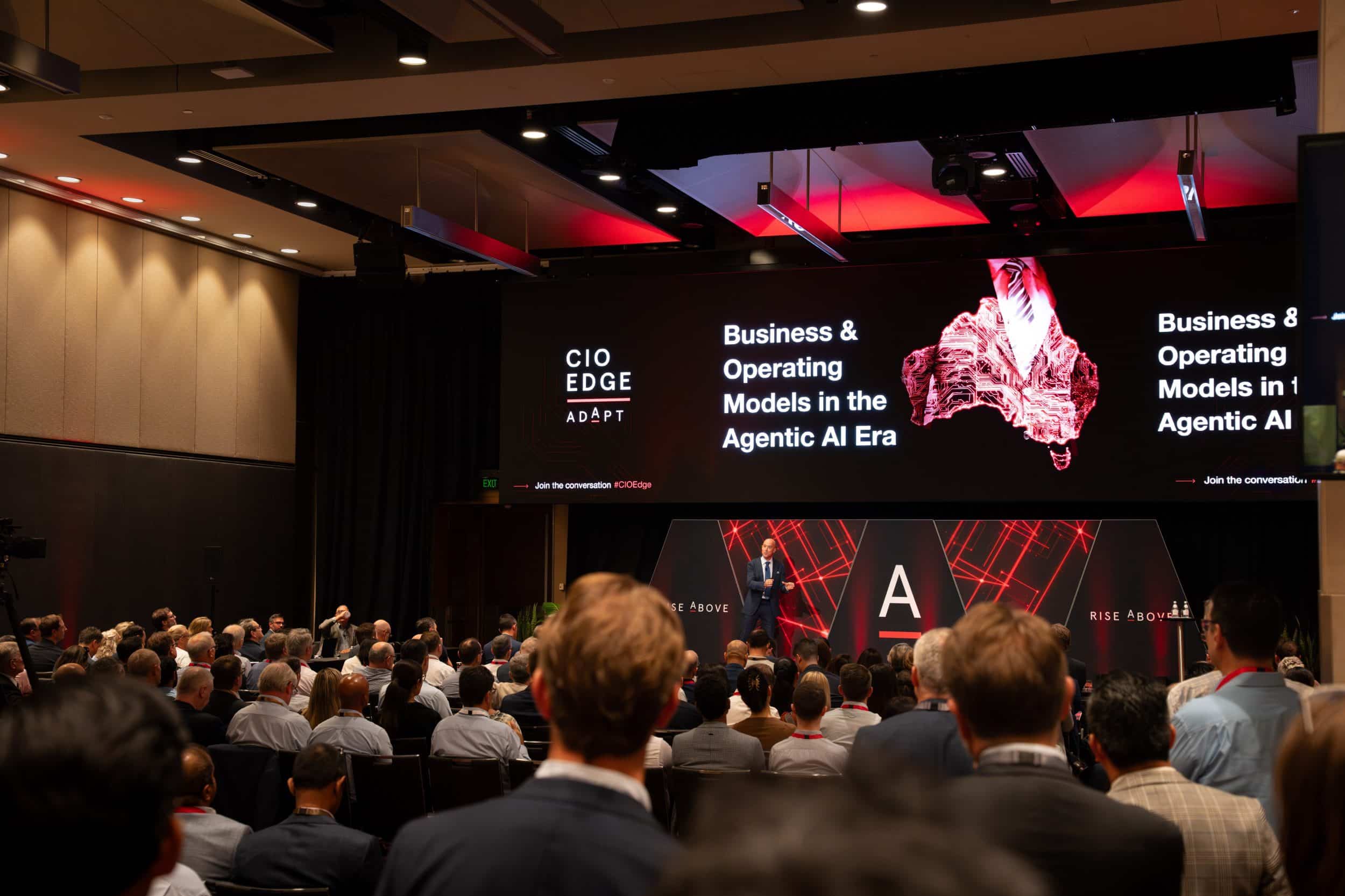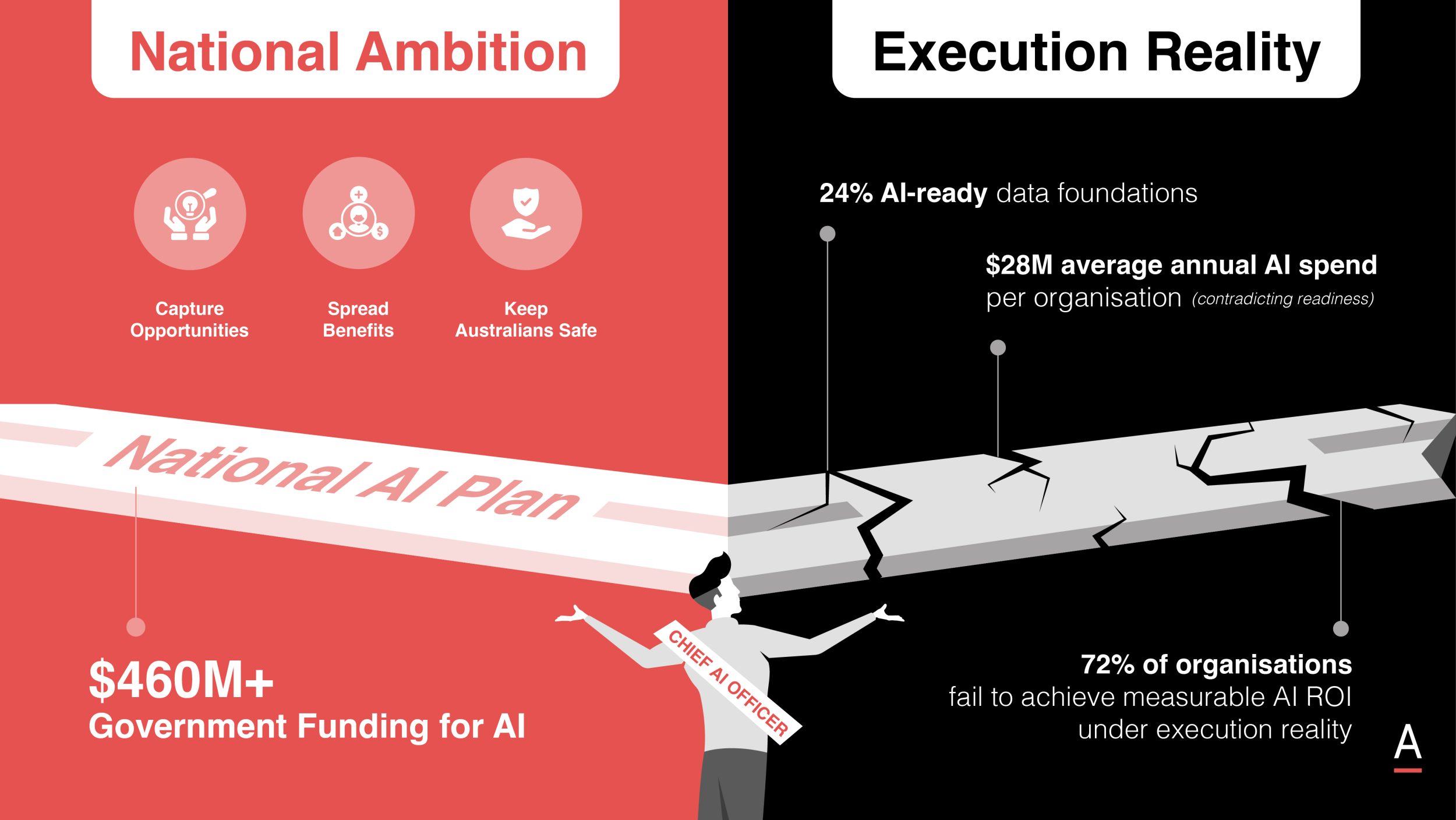CX and AI futurologist Simon Criss urges boards to shift mindset, not just skill set, as ASIC ramps up AI expectations in this Data & AI Edge keynote.
The Chief AI Officer at simonkriss.ai works with boards and C-suite leaders to help them identify real AI opportunities and guide ethical, effective adoption.
In his presentation at Data & AI Edge, Simon explains why most boards struggle to engage meaningfully with AI governance and what must shift for that to change.
He emphasises that genuine board engagement must begin with a mindset shift before introducing new skill sets or tool sets.
Too often, directors either dismiss AI as irrelevant to their remit or become overwhelmed by technical detail. This confusion stems from jumping straight to “how do we do it?” without first asking “why” and “what.”
Drawing a parallel with climate change, Simon argues that boards intellectually acknowledge AI’s presence but struggle to translate that awareness into belief in its business relevance.
Recent ADAPT data supports this: 87% of CIOs report their AI initiatives are underperforming, often due to vague objectives and weak executive sponsorship.
Simon also points to Australia’s cultural barriers. Referencing a KPMG and University of Melbourne study, he notes Australians rank lowest globally in believing AI’s benefits outweigh its risks.
This scepticism, amplified by media narratives around hallucinations and bias, underscores the need for every board to define what AI means in their specific organisational context.
Boards must understand how AI can drive both short-term operational gains (exploitation) and long-term transformation (exploration).
Yet many directors still ask, “What’s in it for me?”, and use tools like ChatGPT to summarise sensitive board papers without grasping privacy risks, highlighting a gap in digital literacy.
Regulators are responding. ASIC now expects board members to be as well-versed in AI as they are in cyber security, and upcoming federal transparency requirements will soon affect Australian companies across all sectors.
Despite this, many boards remain functionally illiterate in AI, lacking even a basic grasp of distinctions between machine learning, generative AI, and cognitive systems.
Simon concludes that while frameworks, metrics, and tools are essential, they are useless without foundational understanding.
Organisations must equip their boards not only with technical resources, but with the language, confidence, and mindset to govern AI responsibly.
Key takeaways
- Boards need a mindset shift before learning tools – Directors often dismiss AI or get stuck in the technical weeds. Real engagement starts with understanding AI’s strategic role and business relevance.
- AI literacy is a regulatory requirement – ASIC expects board members to be as informed on AI as they are on cyber security, but most lack even the basics, putting compliance and judgment at risk.
- Australia lags globally in AI trust – Cultural scepticism, media noise, and poor tool use (like ChatGPT in boardrooms) reveal why ethical, structured board-level AI education is urgently needed.





























